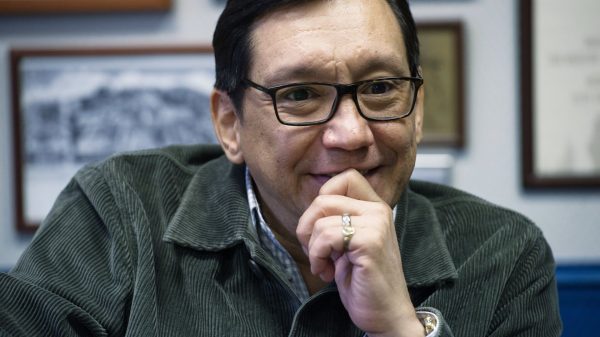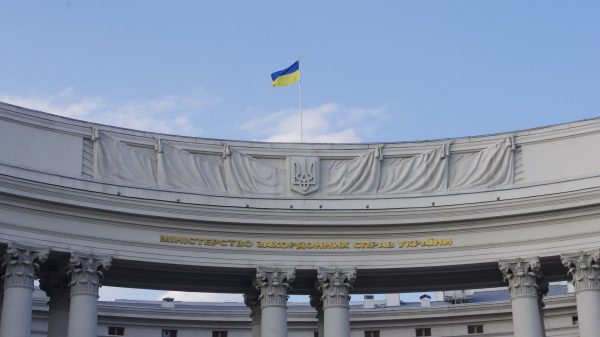Police in Spain have begun scaling back the search for a British hiker missing in the Pyrenees, almost a month after she disappeared without a trace.
Sharing an update of their investigation into the puzzling disappearance of Esther Dingley, the Guardia Civil also said that they were no longer using helicopters to scan the vast mountain range for signs of the 37-year-old.
A spokeswoman for the force told the Observer: “Officers aren’t out searching as intensively as they were at the beginning. They’re not looking everywhere like they did before.”
The search for Dingley began after she failed to return from a solo trek in the Pyrenees, which straddle the border of Spain and France, last month. She last communicated with her partner of 19 years, Dan Colegate, on 22 November, sending a selfie of herself on the summit of Pic de Sauvegarde.
Despite intensive searches of her specified route and surrounding territory since, police have found no clues to her possible whereabouts, prompting a flurry of possible theories to explain her disappearance. Among them were reports last week that Dingley disappeared on purpose in search of a new life – claims fiercely denied by Colegate and her family, who say she was happy.
Other theories encompass the dominant themes of the current news agenda: Covid-19 and Brexit. According to the missing persons charity LBT Global, which is helping with the search, Dingley may have crossed into France from her starting point in Spain and is lying low after worrying about breaching coronavirus travel restrictions. “We want to get the message out that we really don’t care if you have broken Covid rules,” said a spokesperson for the charity.
Missing hiker graphic
Brexit, too, has been mentioned, its own restrictions on freedom of movement likely to have inhibited the couple’s itinerant lifestyle, which had seen them travel around Europe in a campervan since 2014 after both quit their jobs in Durham.
Speaking about Dingley’s disappearance, Captain Jean-Marc Bordinaro of the French gendarmerie confirmed that the couple had discussed “what would happen because of Brexit”. He said: “Esther Dingley has dual nationality so she was less concerned by Brexit, but Dan Colegate is British so it was a concern.”
Stressing that the couple’s differences in opinion were normal, Bordinaro also cited a possible divergence in views on future outdoor challenges. During the summer the couple had completed a 1,000-mile hike across Europe. “She is addicted to the mountains, that is her life. Dan Colegate was perhaps hoping for a more tranquil life,” he said.
The prevailing hypothesis is that there was a tragic mishap. “It seems an accident in the mountains is the most likely theory, but we are not ruling out any leads,” said Bordinaro. Even that possibility has been questioned, with Colegate pointing to his partner’s considerable hiking experience and the fact that the descent from the Pic de Sauvegarde was relatively short, the terrain not especially arduous and the weather good. Yet since Dingley’s disappearance, another complicating factor has emerged – the seasonal Pyrenees snow. If Dingley fell, her body may now be hidden. The Guardia Civil said that their efforts were being compromised by the poor weather.
“The snow makes things very difficult here – and she disappeared even before the snow fell. It’s very hard to see because of the snow,” a spokeswoman said. Last night, fresh snowfalls were forecast for the Pyrenees.
“The area’s difficult, the weather’s difficult. It’s not like they’ve gone missing in the middle of a city,” said LBT chief executive Matthew Searle whose charity was formerly known as the Lucie Blackman Trust after the killing in Japan of the 21-year-old. The trust, which supports British nationals in crisis overseas, says that no new leads have materialised in the search for Dingley for some time – no sightings, and no sign that she has tried to access her bank account.
The trust deals with some 3,000 inquiries a year, with most solved quickly, leaving around 200 in which “something bad happens”. Dingley’s case is unusual, however, for its absolute absence of leads. Both French and Spanish police say they have nothing to go on. An obvious line of inquiry was to examine Dingley and Colegate’s relationship, asking why the couple had decided to embark on separate final trips before returning to the UK. Police found nothing out of the ordinary.
“From what we know, there was no dispute. They were asking questions about their future and whether they could continue living as they had up to now, but it was the sort of questioning that happens in all normal couples,” said Bordinaro.
Another possible explanation for Dingley’s disappearance – that she was the victim of a crime – has no evidence to support it.
Missing persons investigators say it is the absence of leads that rules out a voluntary disappearance. When someone wants to go missing they usually find it impossible not to stay in contact with at least one trusted individual.
Dingley was, says Searle, close to her mother Ria. “Esther had a fantastic relationship with her mother, they were always in contact,” he said. Last Monday, Ria described her daughter as an “open book” who discussed her travel plans and life decisions.
Private investigator Paul Hawkes, whose agency has tracked down tens of thousands of people, affirms that disappearing without a trace is very difficult. “Most people can’t stop themselves staying in contact with their loved ones. To really disappear you need to cut yourself off. There are very few people outside the likes of Lord Lucan [the British peer who disappeared in 1974 after being suspected of murder] who have the resources. You have to be monied up,” said Hawkes, whose London agency Research Associates has been tracking people down since 1977.
People have their own rituals, he says – patterns of behaviour they find hard to shed. “What do they do day after day? There are some things people can’t let go of. Which is why I say that nobody is untraceable,” said Hawkes.
The fact that Dingley has made no electronic footprint, no attempt at communication with anyone is, he said, rare.

























































Свежие комментарии